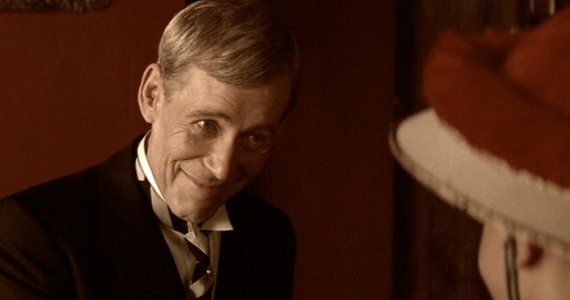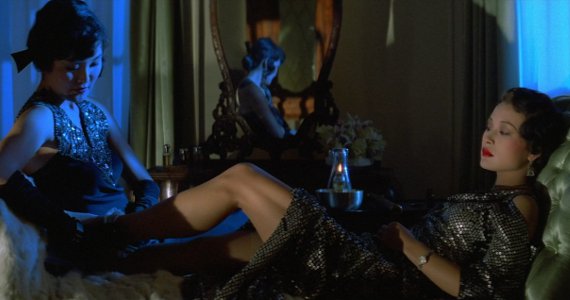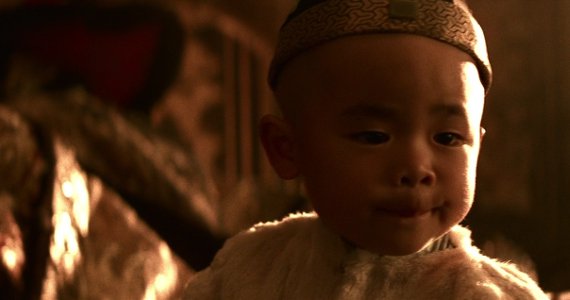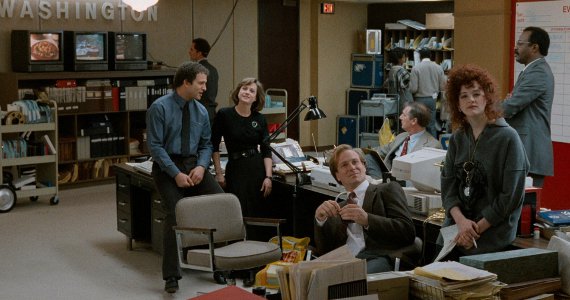 This edition of the Best Picture Series features the first winner from the 80’s, not that it really speaks to the decade at all. The Last Emperor is a biopic taking place in the first half of the century. It is expansive, but I was still not impressed. Let’s take a look.
This edition of the Best Picture Series features the first winner from the 80’s, not that it really speaks to the decade at all. The Last Emperor is a biopic taking place in the first half of the century. It is expansive, but I was still not impressed. Let’s take a look.
Directed by: Bernardo Bertolucci Screenplay by: Mark Peploe & Bernardo Bertolucci Starring: John Lone, Joan Chen, Peter O’Toole.
This film follows the real life story of Puyi, the last man to hold the title of emperor in China. The grand scope of the film shows the young Puyi growing up in the sprawling Forbidden City, cut off from the rest of the country. His extravagant childhood leads to a troubling adolescence where he struggles with his upbringing as the “Son of Heaven” and the fate he’s been ingrained to believe that he is an emperor against the reality that he holds no real power and China is in a period of change that he can do nothing about. The film is structured as flashbacks from Puyi’s time as a prisoner after China has been taken over and the story carries on to his death to really encompass his entire life within this movie.
 My Thoughts:
My Thoughts:
Out of all the Best Picture winners I’ve watched so far, this was easily my least favorite. In fact I hardly enjoyed this film at all. I appreciated the large scope of the story along with the visual splendor of actually filming in the Forbidden City. But just because a film is a spectacle doesn’t mean it’s got the substance to really make it compelling to watch. The lush cinematography didn’t make me any more interested in Puyi who was pretty much a dick throughout the movie. As a child he was spoiled which I realize was a result of his upbringing, but when he cries when his wet nurse is taken away I felt no emotional connection despite knowing it was meant to be a big scene. I was annoyed by everything he did, from making one of his caretakers drink ink to prove he had real power to striking a deal with the Japanese to become a puppet emperor after his real title had been stripped from him. They were all actions of a brat and it kept me from really seeing any of the film’s significance.
I realize that a main theme of the film is that Puyi essentially never had power of his own. As a child he was technically an emperor but because he was so young he only really had people taking care of him. By the time he could have actual influence his only power was inside the Forbidden City walls. After he was removed completely from his home and title, he attempted to regain some power by becoming the “emperor” of Manchukuo, when really the Japanese had control over it all. It was unfortunate that all he wanted was what had been promised to him since birth. It is all that he had known, but sadly this depressing chain of events still wasn’t really fascinating to me. It didn’t help that the movie was easily a half hour longer than it needed to be. I couldn’t help but think the English-speaking Chinese accents were a bit comical. It sounded like they did a bad dubbing job and it made me really hesitant from the start to give this film an earnest watch.
After watching this I really wanted to check out the competition to see what it managed to beat out. Besides Hope & Glory I watched the other three nominated films and I enjoyed each of them significantly more than The Last Emperor. It saddened me that in a year of such strong genre offerings, the big award went to the boring biopic that looked nice but has a such a weak narrative. On the other hand, you have the subversive thriller Fatal Attraction and the charming slice of life film Moonstruck featuring a fantastic ensemble. Both were rather entertaining but also had the sophistication of well made cinema, although I see why neither managed to take the prize. Above any of them stands Broadcast News, with a brilliant script, wonderful performances (standouts from Holly Hunter, William Hurt, and Albert Brooks), and perfect execution from James L. Brooks. It made a point about the current times while managing to be an effecting human piece. Maybe it didn’t span a lifetime or have the bragging rights of being the first movie to film in a sacred place, but its story holds more meaning and it is a much more enjoyable watch.
Maybe I just didn’t get why The Last Emperor was worthy of Best Picture, but I do know that this grand “epic” holds little significance today outside of a world history classroom (the film itself, not saying the true history). I found it to be overstuffed and self important. It looked great and I can admit it is a decent movie, but I still found myself completely bored while waiting through its run time.

Academy Award nominations and wins:
Won:
Best Picture
Best Director – Bernardo Bertolucci
Best Adapted Screenplay – Mark Peploe & Bernardo Bertolucci
Best Film Editing – Gabriella Cristiani
Best Cinematography – Vittorio Storaro
Best Art Direction
Best Costume Design
Best Original Score
Best Sound
- Broadcast News – A James L. Brooks romantic comedy about a news team dealing with running their show and relationships – Nominated in 7 categories
- Fatal Attraction – Adrian Lyne’s thriller about a how the woman a man cheats on his wife with comes back to torment his life – Nominated in 6 categories
- Hope and Glory – A view of Britain during WWII through the eyes of a ten year old in this comedic drama by John Boorman – Nominated in 5 categories
- Moonstruck – Norman Jewison directed this romantic comedy about a woman who falls for her fiance’s brother, reawakening the passion her life had been missing – Won Best Actress (Cher), Best Supporting Actress (Olympia Dukakis) and Best Original Screenplay (John Patrick Shanley) & nominated in 1 other category
The same year that The Untouchables, Full Metal Jacket, Good Morning Vietnam, Raising Arizona, and Radio Days were not nominated.



